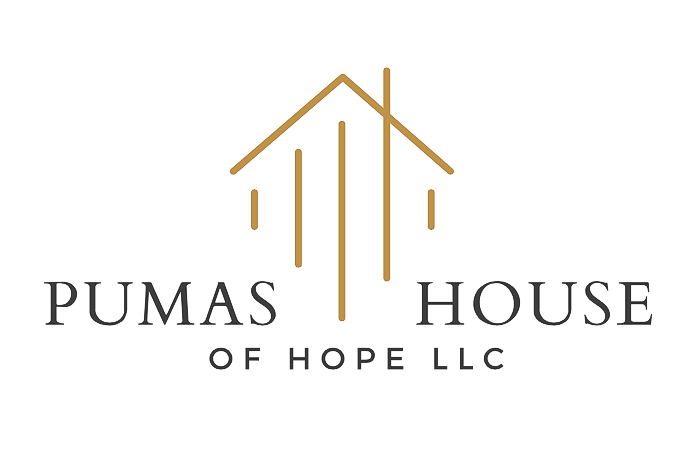About Us
About Us
Through a series of challenging experiences and a determination to embrace a more fulfilling existence, our founder discovered a renewed sense of hope and purpose. When he and a friend made the decision to embrace sobriety, they had a dream of opening a transitional living home. Their goal was to create a nurturing environment that would offer the necessary framework, security, and encouragement to aid individuals in their journey toward recovery. In 2023, the first Pumas House of Hope home opened its doors on Longfellow Ave in Tucson, Arizona, turning their dream into a reality. The home provided an ideal environment for individuals reintegrating back into society after experiencing incarceration or battling addiction for a significant portion of their lives.
What is a
Recovery House?
A recovery home is a residential facility designed to accommodate those who are in the process of reintegrating into society after being in prison or struggling with addiction to drugs or alcohol. It serves as a communal living space where individuals in recovery can live together in a supportive environment that is free from substance use. Although some residents of recovery houses may participate in outpatient rehabs or have just completed an inpatient rehab program, such as a conventional 28-day program, it is important to note that recovery houses are not rehab facilities in and of themselves.
Recovery houses provide supportive, safe places for individuals in recovery to live, but they do not provide therapeutic treatment for addiction.
What are the benefits of living in a recovery house?
At a recovery house, you'll find a supportive community that encourages your recovery and provides daily accountability. In most cases, sober living homes are equipped with on-site managers who reside in the house alongside you and the other residents. Our dedicated team of managers is always on standby to assist you with any challenges that may arise during your recovery journey. Whether it's dealing with cravings, managing emotions, or finding employment, they are here to provide support and lend a listening ear. Typically, recovery housing is staffed with individuals who have personal experience and can provide support. These individuals have firsthand experience with substance addiction, successfully completing a rehab program, and maintaining sobriety post-treatment. They are available to provide you with guidance when you need it most.
House managers will ensure that you are held accountable. At a recovery house, a set of rules is implemented to ensure the well-being and sobriety of all residents. These rules may consist of policies regarding alcohol and drug usage on the premises, a designated curfew, or periodic drug screenings to maintain a substance-free living environment. If someone consistently violates the rules (though we understand that relapses can happen), they may be denied further stay. This ensures a consistent environment and sets clear expectations.
Admission Requirements
- You must remain drug and alcohol free –precluding the care of a physician (including narcotics, benzo's medical marijuana, etc.) through participation in a 12-step program (AA, NA, MA, HA, PA, or the like)
- You must be gainfully employed or looking for a job-unless in an aftercare program.
- You need to attend a minimum of five sobriety meetings a week. (This can include IOP or other aftercare). It is recommended to do 90 meetings in 90 days
- You must be willing to abide by the rules of the House
- You shall be willing to commit to 90 days (3 months) of residency at the House and give a week notice to move out
- You must have no history of sex crimes or arson
Founder of Pumas House of Hope!
Nery Gonzalez is a remarkable advocate for resilience and community empowerment. Growing up in a challenging environment, Nery faced numerous hardships during his formative years, including time spent in and out of the system. Despite these obstacles, he remained focused on the potential for change. Motivated by his own experiences, Nery envisioned a recovery home where individuals could find support and begin their journeys to healing. Overcoming significant challenges such as financial constraints and skepticism, he tirelessly worked to turn his vision into reality. His determination and belief in the power of community led to the successful opening of his first recovery home, which became a beacon of hope for those seeking a second chance. Beyond providing a safe haven, Pumas house of hope serves as a platform for education and empowerment. He actively engages in community events and workshops, fostering unity and belonging among residents. Nery's efforts have helped many break free from cycles of addiction and incarceration. Today, Nery Gonzalez stands as a pillar of support in his community, demonstrating that change is possible even in the face of adversity. His inspiring journey continues to uplift others, proving that resilience, determination, and hope can lead to meaningful impact and transformation.

